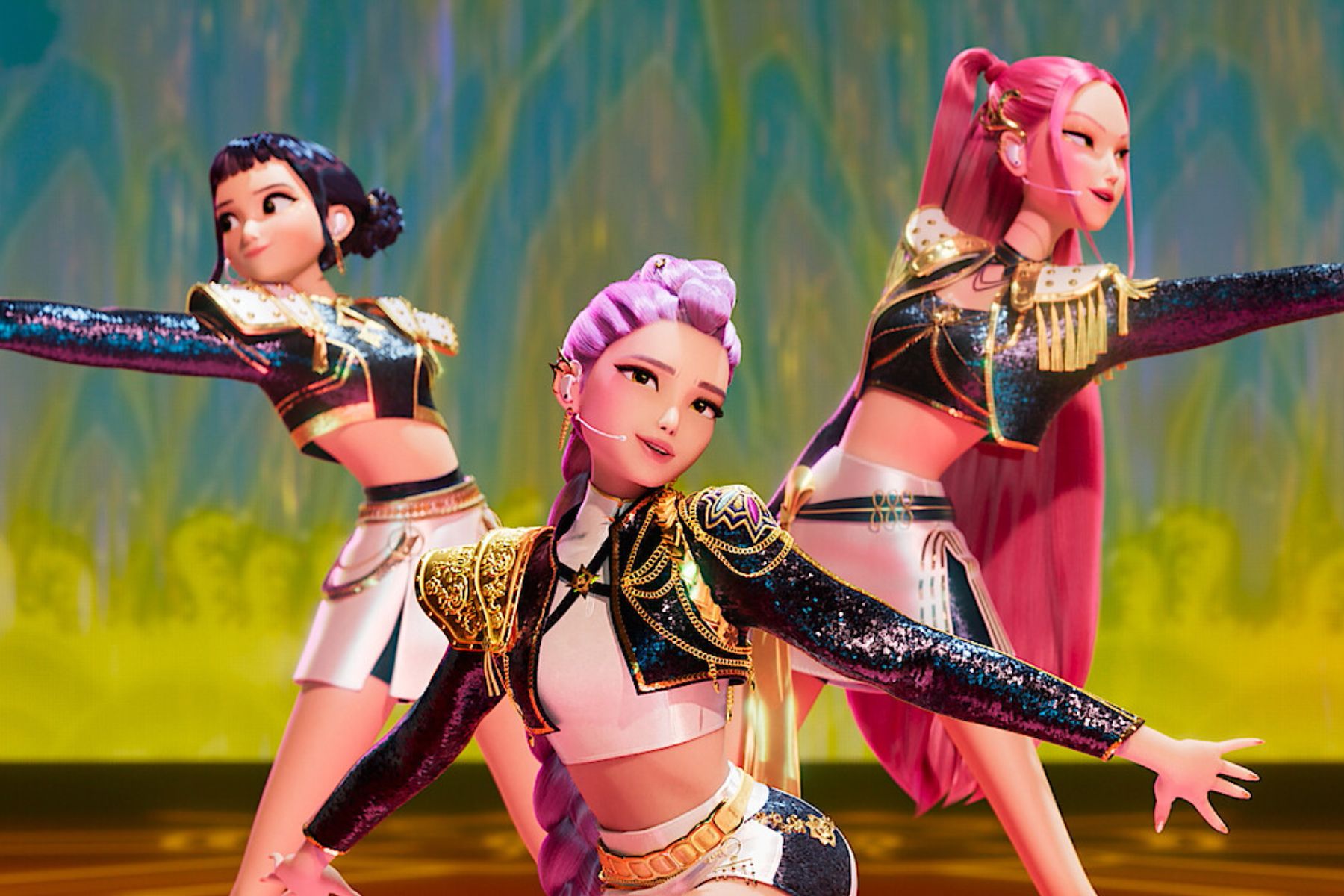With sold‑out stadium tours and high-profile collaborations with international artists, K-pop has become one of the most dominant forces in music today. Groups like BTS, BLACKPINK, and SEVENTEEN have rewritten the rules of fandom, marketing, and digital engagement – proving that Korean pop culture is far from a niche genre, but global mainstream.
Enter Netflix’s K‑Pop Demon Hunters, an animated film about female K-pop idols who moonlight as demon slayers. Most would expect a blend of Korean folklore and pop music fantasy riding on the Hallyu wave that started in the 2000s. But no one predicted that its fictional girl group Huntr/x and rival boy band Saja Boys would go viral – even beating real-life K-pop acts on the charts.
What began as a fantasy-action film with glossy soundtracks has now become a full-fledged phenomenon. Boasting thousands of Instagram and TikTok edits, Billboard chart placements, and a fanbase growing by the day, K‑Pop Demon Hunters is not just Netflix’s most-watched animated film of the summer – it’s also arguably the year’s most successful K-pop debut(s). Pretty impressive for two bands that technically don’t even exist.
The real voices behind Huntr/x and Saja Boys – your new (fictional) K-pop idols
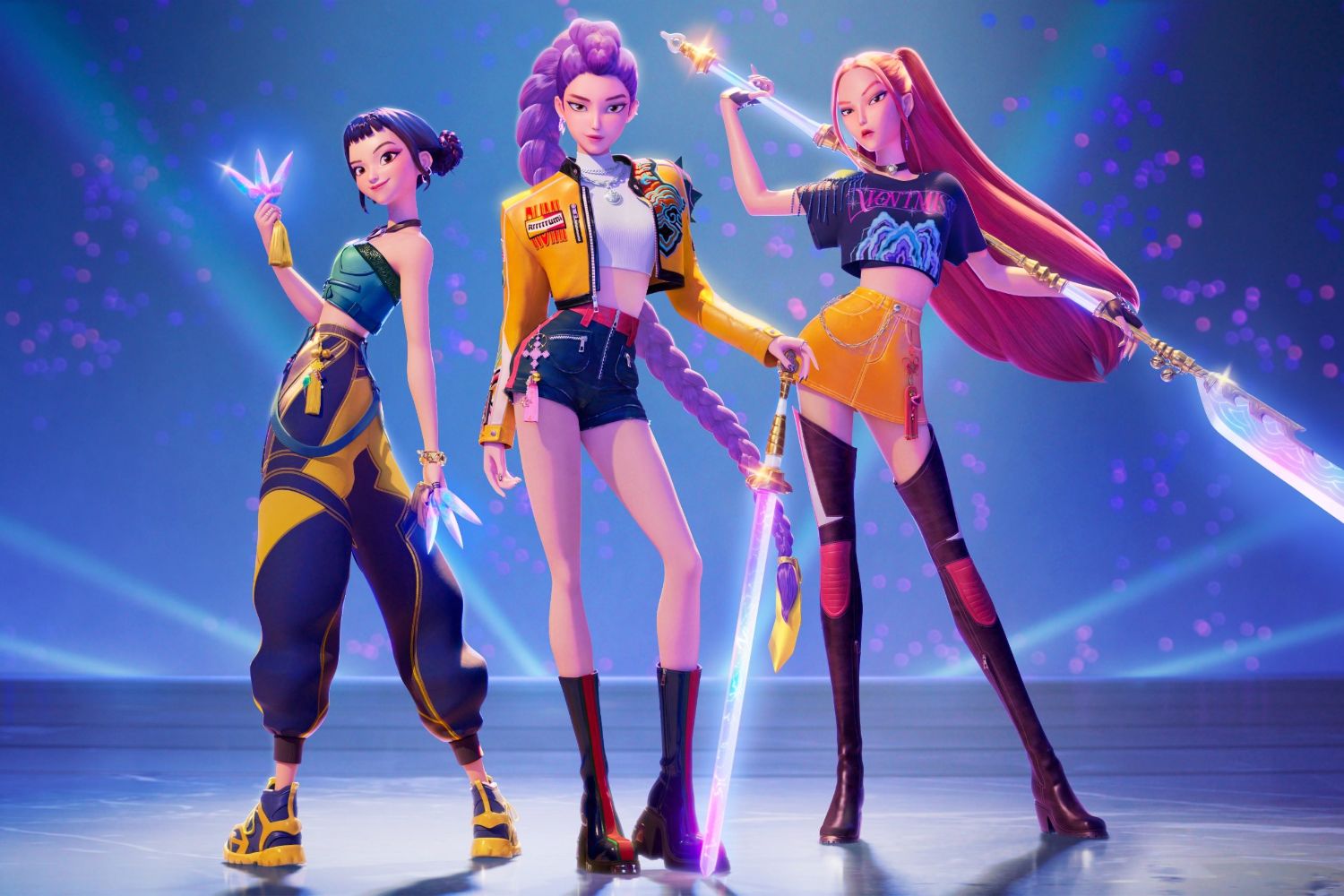
K‑Pop Demon Hunters centers on Huntr/x, an all-girl K-pop group who double as demon hunters, and their rivals Saja Boys, a new fan-favourite boy band with a hidden agenda. Voiced by a mix of rising Korean-American talents and seasoned anime veterans, these characters have quickly gained cult followings not just for their style and sass, but for their surprisingly catchy discography.
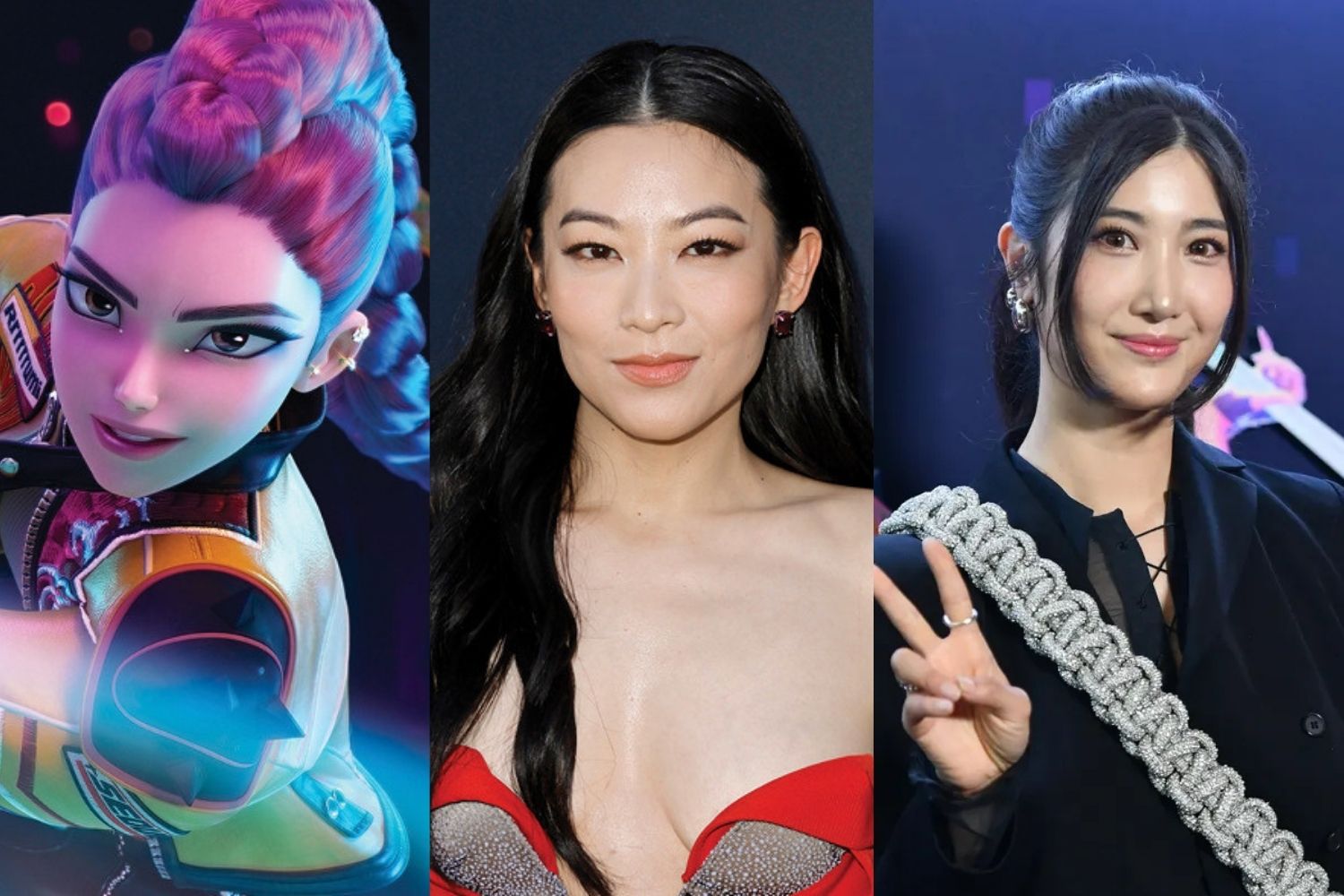
Rumi, Huntr/x’s lead character with a secret she conceals from her bandmates, is voiced in dialogue by actress Arden Cho. Her singing voice is performed by EJAE, a prolific K-pop songwriter who has worked with TWICE, Red Velvet, Aespa, NMIXX, and KARD. EJAE also co-wrote and co-produced the breakout hit ‘Golden’.
Mira, the group’s choreographer, is portrayed by May Hong in dialogue and by R&B artist Audrey Nuna in vocals. Nuna, known for genre-blending tracks like ‘Damn Right’ and ‘Comic Sans’, brings an edgy depth to the character’s voice. Lastly, Zoey, the lyricist and maknae (youngest member) of the group, is voiced by Ji‑young Yoo, with vocals by Korean-American singer Rei Ami, who gained viral fame with her 2020 hit ‘Freak’.
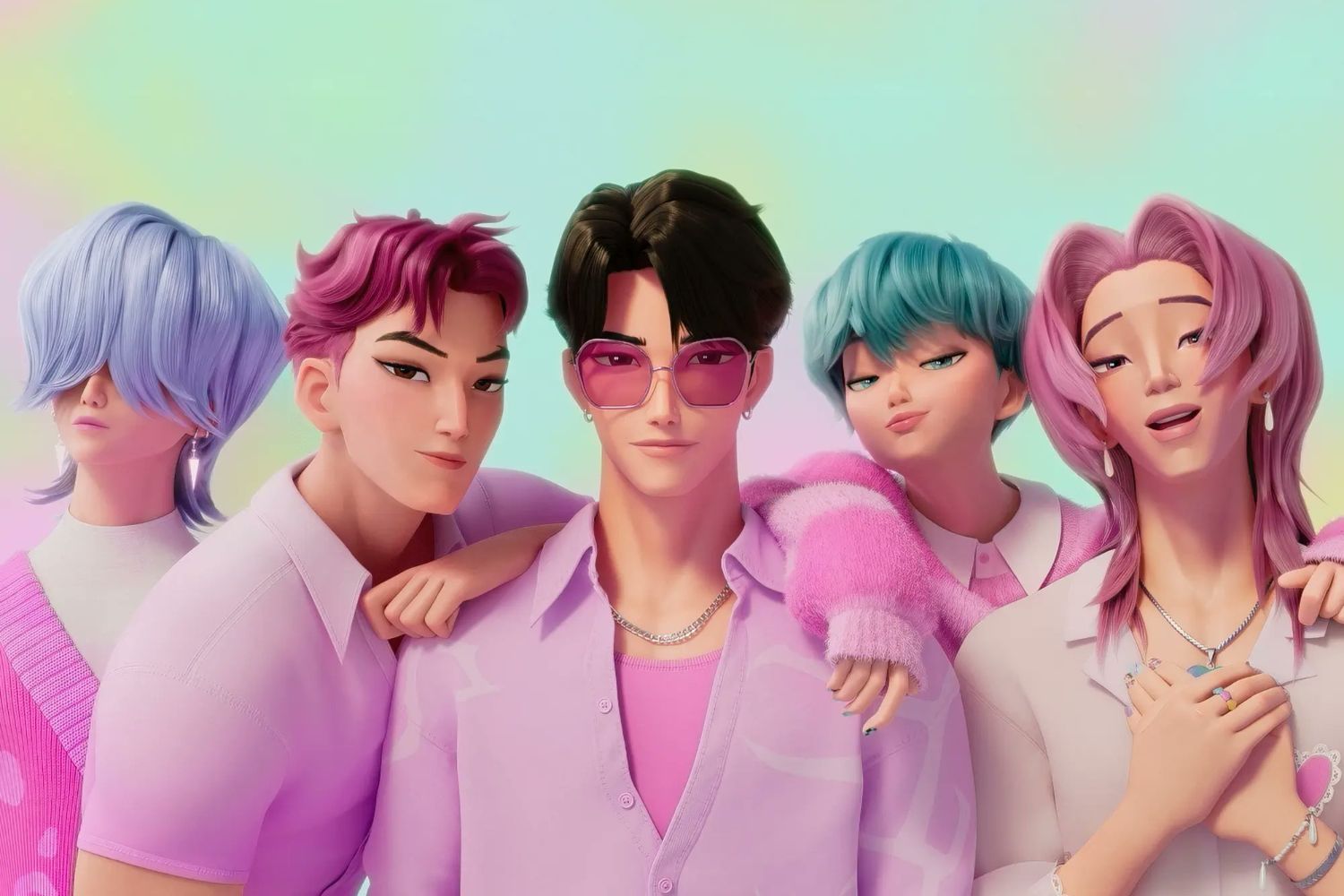
On the other hand, the fictional boy band Saja Boy features vocal contributions from a lineup of seasoned actors and real-world artists with roots in K-pop or indie music scenes. Leading the group is Jinu, voiced by Ahn Hyo-seop, with powerhouse vocals by Andrew Choi. Comedian Sungwon Cho (ProZD) lends his voice to Abs Saja, while Seoul-based R&B artist Neckwav provides the singing.
Mystery Saja is voiced by Alan Lee, but sings through Kevin Woo of U-KISS fame, who also starred in the KPOP Broadway musical. Romance Saja’s charming persona is voiced by Fire Island actor Joel Kim Booster, with vocals by rising singer-songwriter samUIL Lee. Rounding out the band is Baby Saja, whose rap vocals are performed by Danny Chung, a prolific songwriter for BLACKPINK and other major YG acts.
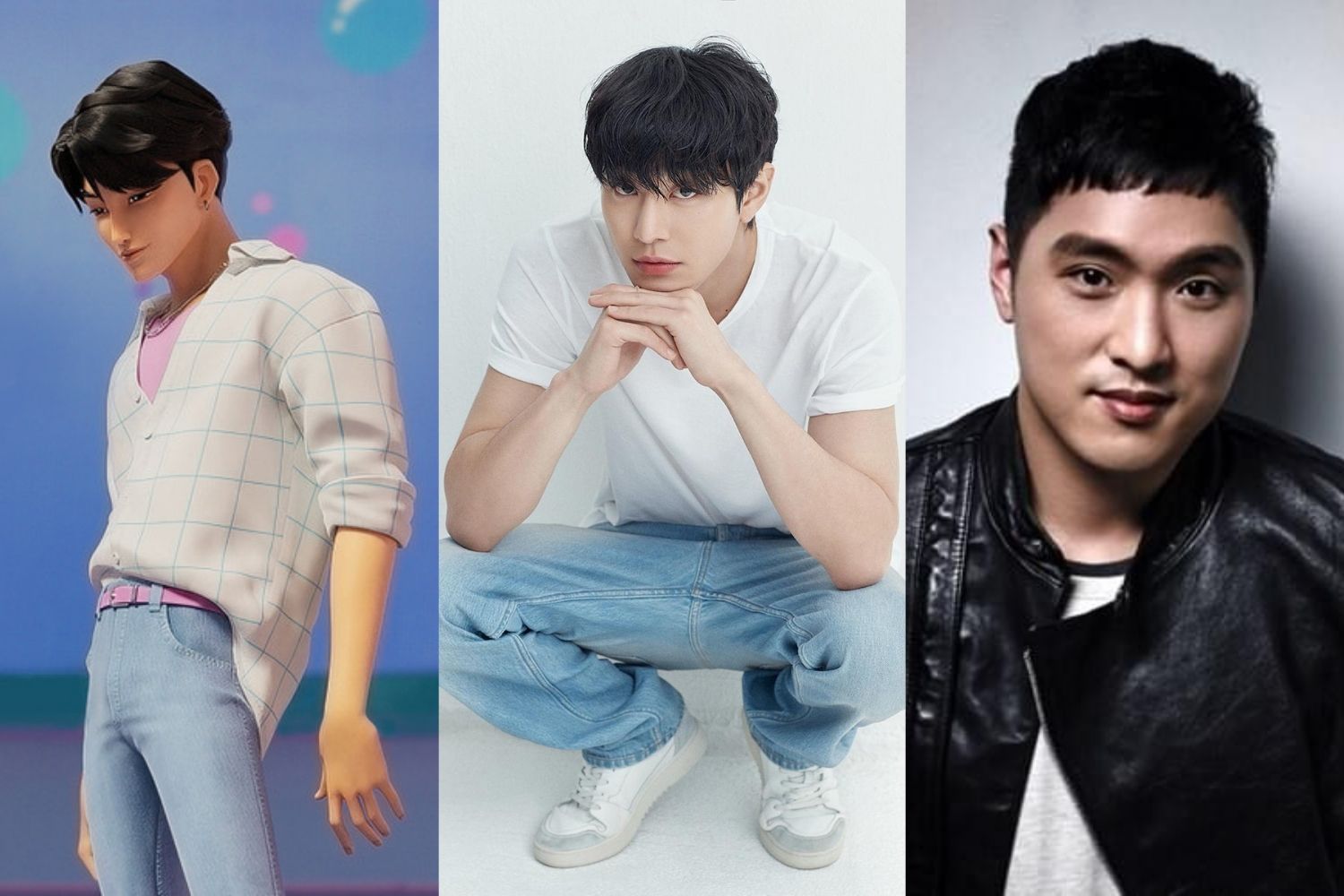
Their signature tracks – namely, ‘Golden’ by Huntr/x and ‘Your Idol’ by Saja Boys – were produced in collaboration with real-world hitmakers under Republic Records, blending authentic K-pop sensibilities with cinematic flair. Another memorable hit, ‘Takedown’, also features an end-credits version performed by TWICE members Jeongyeon, Jihyo, and Chaeyoung. These songs were initially intended to support the movie’s plot, but have since taken on a life of their own.
From animation to annihilation on the charts
Let the numbers speak for themselves.
Mere days after K‑Pop Demon Hunters debuted on Netflix (June 20, 2025), ‘Golden’ soared to No. 8 on the Billboard 200, setting a new benchmark for both animated features and K‑Pop-adjacent projects in 2025. It also entered Spotify’s Global Top 10, while ‘Your Idol’ by Saja Boys reached No. 2 on the U.S. Spotify chart – overtaking releases by BTS and SEVENTEEN in its first week.
More recently, Billboard revealed that ‘Golden’ has claimed the No. 1 spot on its Global 200 and Global Excl. U.S. charts, surpassing 67.7 million streams (up 40% week-over-week) globally with 6,000 sold (up 27%) worldwide from July 4-10. As of the time of writing, the soundtrack tops Spotify’s Top 50 songs in Malaysia, USA, and globally; as well as Apple Music’s No. 1 spot in eight countries. The full K-Pop Demon Hunters album also stands at No. 1 on Apple Music in 18 countries, including Australia, Singapore, Malaysia, and South Korea.
Other songs such as ‘Soda Pop’, ‘Your Idol’, and ‘How It’s Done’ have also broken into multiple charts and remain trending across social media. Combined, Saja Boys and Huntr/x have outperformed real-life K‑Pop acts on multiple global streaming platforms – a feat few could have predicted. No other fictional band has ever disrupted real-world music metrics this convincingly.
So, how did ‘K-Pop Demon Hunters’ become a viral sensation?
Well, first of all, the film’s stylised fight scenes, glittering idol aesthetics, and emotionally charged songs made it a goldmine for social media users. Dance challenges to ‘Golden’ and ‘Soda Pop’ went viral within days, inspiring millions of user-generated videos.
Real-life K-pop artists and independent music creators alike have also posted song covers, including Yujin of IVE, Solar of MAMAMOO, and twin TikTok stars Kiran and Nivi. Even Malaysia’s own songbird Shila Amzah and rising artist Gaston Pong have shared their own renditions of the breakout hit, ‘Golden’.
Additionally, the character dynamics – ranging from enemies-to-lovers tropes to girl gang solidarity – have sparked a boom in fanfiction, with over 3,600 stories published across AO3 and Wattpad. Instagram and X (formerly Twitter) have been flooded with cosplay, digital fan art, and headcanon debates. Talk about a full-blown fandom ecosystem.
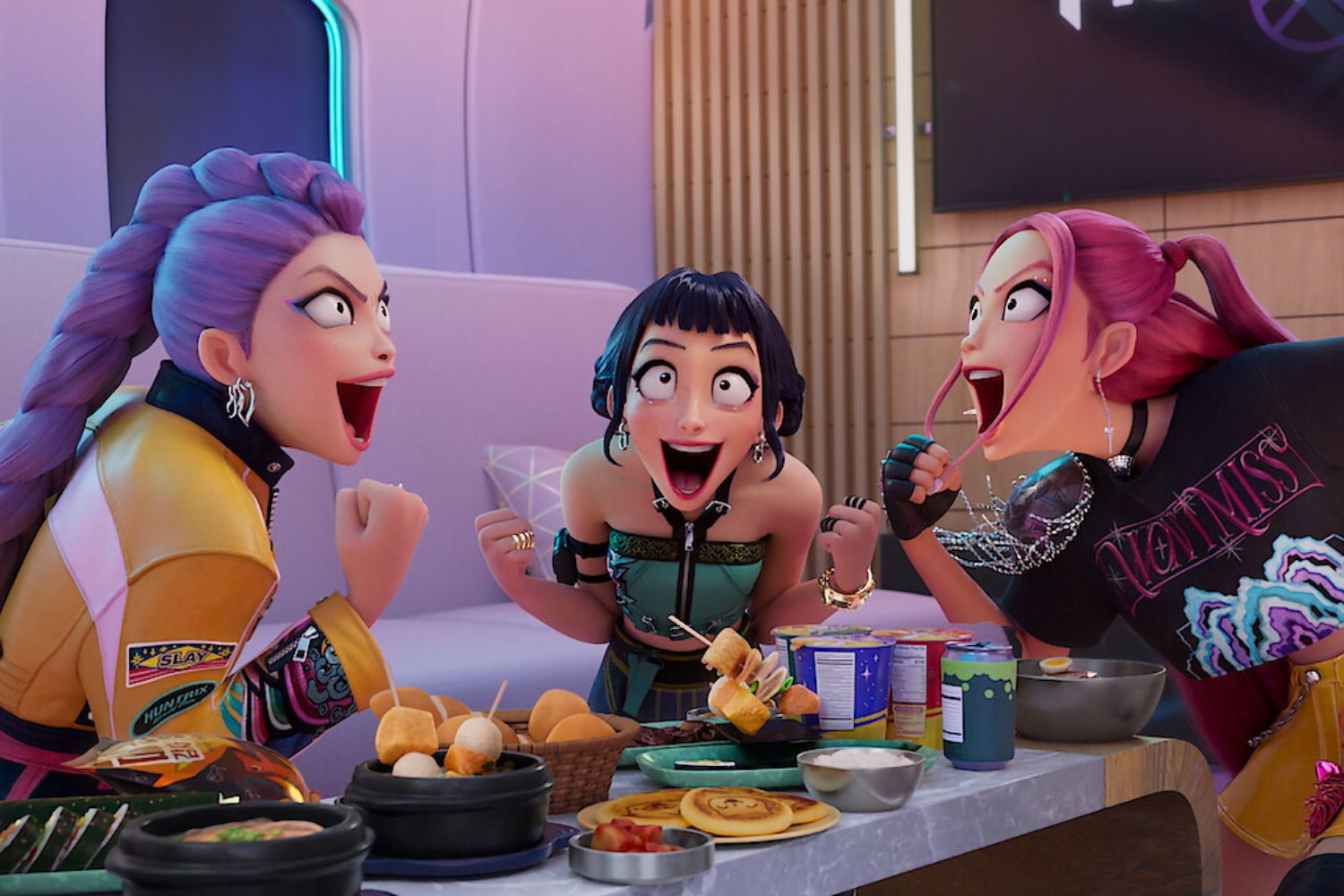
Beyond the catchy choruses, the film is steeped in cultural context. K‑Pop Demon Hunters weaves Dokkaebi (goblin spirits) mythology, temple iconography, shamanic ritual, and familiar locations around South Korea. Themes of identity, performance anxiety, and sisterhood resonate, especially among younger viewers navigating authenticity in a high-pressure world.
Visually, the animation is both stylish and kinetic – capturing idol-stage aesthetics with the hyper-fluid action of a fantasy epic. The characters grapple with the duality of fame and inner demons, giving the film an emotional weight that resonates with audiences across age groups.
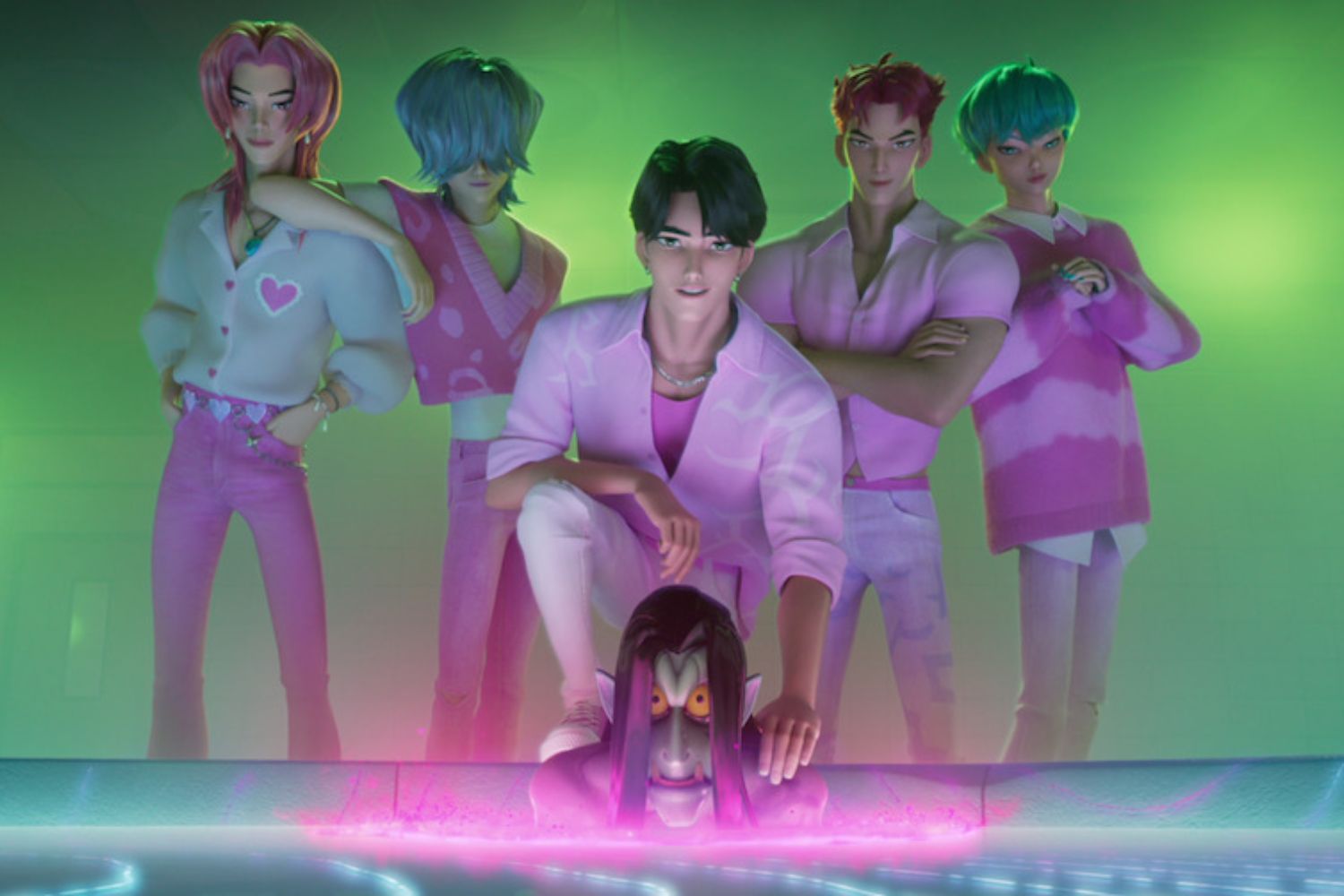
What’s next – sequel rumors and virtual concerts?
As of the timing of writing, K‑Pop Demon Hunters has reportedly clocked over 106 million views, and the buzz isn’t slowing down. In fact, Netflix has just announced that the film has reached a new viewing peak in its fifth week of release – the first Netflix film to do so. Fans are already demanding a sequel, and rumours are swirling about spin-offs, virtual concerts, and even mobile rhythm games featuring Huntr/x and Saja Boys.
Netflix is reportedly submitting “Golden” for Best Original Song at the 2026 Oscars, which could mark a historic first for Korean-American songwriter EJAE in that category. There’s also talk of a live tour – possibly featuring the original vocalists – and animated concert specials in the style of Hatsune Miku or K/DA.
In an age where virtual influencers have brand deals and AI idols debut on music charts, K‑Pop Demon Hunters may have just given us a glimpse into the future of pop culture. The lines between real and fictional fandom are blurrier than ever – and here’s proof that a well-crafted animation backed by killer beats can rival even the biggest names in the business.
Watch (or rewatch) K-Pop Demon Hunters on Netflix here.
Read more entertainment news and stories here.


